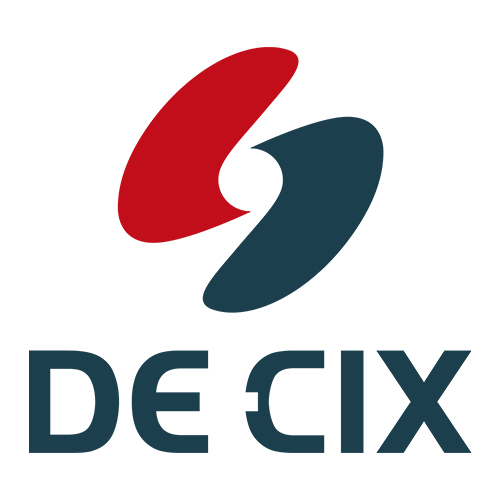Knowledge Sharing to Boost Future Business – When Academia and Commercial Organizations Join Forces
Ivo Ivanov from DE-CIX explores the benefits and trust built by the global Interconnection Academy, initiated by DE-CIX in collaboration with the Universitat Pompeu Fabra (UPF).

©metamorworks | istockphoto.com
The Barcelona-based Universitat Pompeu Fabra (UPF) is working together with commercial Internet Exchange (IX) operator DE-CIX to provide a training program for future interconnection specialists through the recently established global Interconnection Academy. Ivo Ivanov, initiator of the Interconnection Academy and CEO of DE-CIX, explores the motivations, challenges, and benefits of academia and commercial organizations working together.
The skills gap is posing an increasing challenge for companies the world over to deliver their services and grow according to their strategic goals. According to analysts at IDC, 60-80% of companies in the Asia Pacific are experiencing challenges in filling IT positions, while the recruitment and HR firm Hays has found that just shy of 95% of British companies are suffering from the tech skills gap. Analysts at McKinsey calculate that, in the US in 2023, there are over 4 million more job vacancies than there are jobseekers to fill them, with digital talent as one of the heavyweights. Figures from the European Commission suggest that, despite this, only 37% of adults in the EU undertake any form of professional development training on a regular basis. As a result, the EC has named 2023 the European Year of Skills.
Educating workers for the needs of today and tomorrow is posing a massive challenge for companies and governments alike in the transformation of economies. Narrowing this gap will be a key task to enable future growth. With increasing demand for skilled workers in the areas of data analytics, software development, and security, for example, companies are struggling to fill positions. However, other professions that don’t catch the headlines are also in high demand. This is the case when it comes to knowledge of interconnection, which includes how to operate Internet Exchanges (IXs), how to optimize an organization’s dataflows, and how to best connect corporate networks with cloud providers, data centers, external partners, and end customer access networks.
With this in mind, we at DE-CIX have been working together with the Universitat Pompeu Fabra (UPF) in Barcelona on the development of an online educational program aimed at training interconnection specialists. The global Interconnection Academy is designed to offer courses as fully online, interactive NanoMOOCs (Nano Massive Open Online Courses), which are free and openly accessible to anyone. The initial set of courses combine the expertise of academics from the UPF Information and Communication Technologies Department with operational specialists in the field of interconnection from DE-CIX.
In the development of course materials for the academy, both of our parties each play their own role. As Professor Miquel Oliver – member of the Department of Information and Communication Technologies at the UPF and valued collaborator in the Interconnection Academy – reflects: “The interaction between the two parties is a work in progress. DE-CIX is a global organization with excellent experts in all its areas (technical, sales, marketing, finances, communication, etc.). UPF also has a set of experts in networking, technology, AI, data science, etc. Combining both forms of expertise is a big challenge and a fantastic opportunity for the Chair.”
While his colleagues at DE-CIX select the target audience and provide extensive input for the creation of the curriculum and scripting the videos for the nanoMOOCs, the UPF team assesses and helps with the methodology, as well as with the design of the materials and training resources. The UPF undertakes the filming and production of the videos using speakers from both DE-CIX and the UPF, and both parties are involved in the review process. “The joint expertise in a range of topics, with the clear leadership of DE-CIX and the academic support of the UPF, is able to generate high quality content on demand,” Professor Oliver adds.
From his perspective, this collaboration is just the first step in a much broader approach to spreading knowledge of interconnection. The courses are being created for the current and future players in the interconnection value chain, so DE-CIX also invites other industry stakeholders to contribute additional content to the academy. Over time, the university network will also be extended to enable the adaptation of the Interconnection Academy materials to different cultures and markets.
Why is interconnection knowledge so important?
Without the digital infrastructure of data centers and high-speed networks, the digitalization of economies would not be possible. It’s not only about having computing power at hand, it’s also about allowing data to flow. In the digital economy, for example, data needs to flow between a company and its customers; between the company offices and resources or applications in the cloud; between the company headquarters and its branches or production plants; and between the production plant and the ERP system, logistics partners, and suppliers. Very often, data needs to flow between multiple companies working together as a consortium to provide data-driven services, and then on to the thousands of customers they serve. It needs to flow fast, in order for services and applications to perform effectively, and these data flows need to be secure and resilient.
What interconnection does is to streamline and secure this flow of data. The faster data can flow, the greater the company productivity, the better the performance of internal and customer-facing apps, the more seamless the production process can be. The reason for this is that the speed that data travels is inversely proportional to the length of the pathways it must take. The shorter the pathways, the fast data can reach its destination, be processed, and have the required impact. Direct interconnection (via an IX or a Cloud Exchange) with network operators, clouds, other company networks, and customer access networks, for example, enables the shortest pathways to these destinations.
Closing the interconnection skills gap
The topic of interconnection is no longer just the preserve of network engineers in the wholesale telecommunications market. As more and more enterprises start building their own connectivity infrastructure and taking a hands-on approach to controlling their data pathways, a much wider group of people – including CTOs and Digital Strategists – are also called upon to understand the potential of interconnection for solving high-level global challenges.
It is also becoming increasingly important to ensure that technical staff in general – not only cloud and network architects – are equipped with the knowledge of how best to implement interconnection solutions to meet business needs and expectations.
Many companies do not have the resources to be sending staff to undertake long, drawn-out degrees to have the knowledge in-house. Here, the global Interconnection Academy offers a perfect opportunity for professional development for existing staff, as well as adding value to the qualifications of career starters. The modules are available free of charge, and the training is 100% online – so this educational offer is global, wherever interconnection knowledge is needed.
Versatile training – online and interactive
Interconnection specialists – one of the professions that barely existed at the turn of the millennium – are becoming highly sought-after today, both in the Internet infrastructure industry and within organizations of all shapes and sizes. The stated aim of the Interconnection Academy is to deliver the best training on the topic of interconnection and connectivity, merging technical and business aspects and standardizing the body of knowledge linked to the interconnection business. Modules in the ever-growing library of the Interconnection Academy will range from business strategy topics related to interconnection, digital infrastructure, and the needs of enterprises in the digital economy, through to highly technical modules. The aim of the program is to set standards for the entire industry – for both young and seasoned professionals – in terms of education and expertise. Ultimately, completed modules can be combined to achieve a master certificate identifying the holder as a Certified Interconnection Specialist.
The benefits of collaboration between academic institutions and commercial organizations
Asked why the UPF is interested in joining forces with commercial organizations like DE-CIX, Professor Miguel Oliver replies: “The UPF is a public institution with a clear mission. Helping organizations – by transferring our expertise and know-how, in this case, in online education – is part of our DNA. We have outstanding figures on research outputs, but we need to vehiculate these brilliant research results towards the society. Otherwise, the impact of all our work would be limited.
Moreover, feedback is also a crucial part. We learn a lot from experts working in leading sectors of the industry. The mutual collaboration enriches us by involving students in so-called ‘non-academic’ projects, such as learning from DE-CIX how the Internet market is evolving and which job opportunities it offers. The close collaboration and day-to-day interaction with professionals provides intangible benefits to our teaching staff, who can use the insights gained to inform their own applied research, and for teaching lessons.”
And why are we at DE-CIX investing time and energy in such a training program? Because it’s necessary. Interconnection is a topic which will only become more important as our digital economy evolves. Not just for Internet Exchange operators like ourselves to find the talent of tomorrow, but for our partners, our customers, for communities that want to interconnect their networks, and simply for every organization that recognizes the importance of protecting and controlling their data on its exciting journey through the economy of the future. Together with the UPF and other valued partners, we want to share our valuable knowledge of interconnection, and make it freely available worldwide.
Ivo Ivanov has been Chief Executive Officer at DE-CIX and Chair of the Board of the DE-CIX Group AG since 2022. Prior to this, Ivanov was Chief Operating Officer of DE-CIX and Chief Executive Officer of DE-CIX International, responsible for the global business activities of the leading Internet Exchange operator in the world. He has more than 20 years of experience in the regulatory, legal and commercial Internet environment. Ranked as one of the top 100 most influential professionals of the Telecom industry (Capacity Magazine’s Power 100 listing, 2021/2022), Ivo is regularly invited to share his vision and thought leadership in various industry-leading conferences around the globe.





